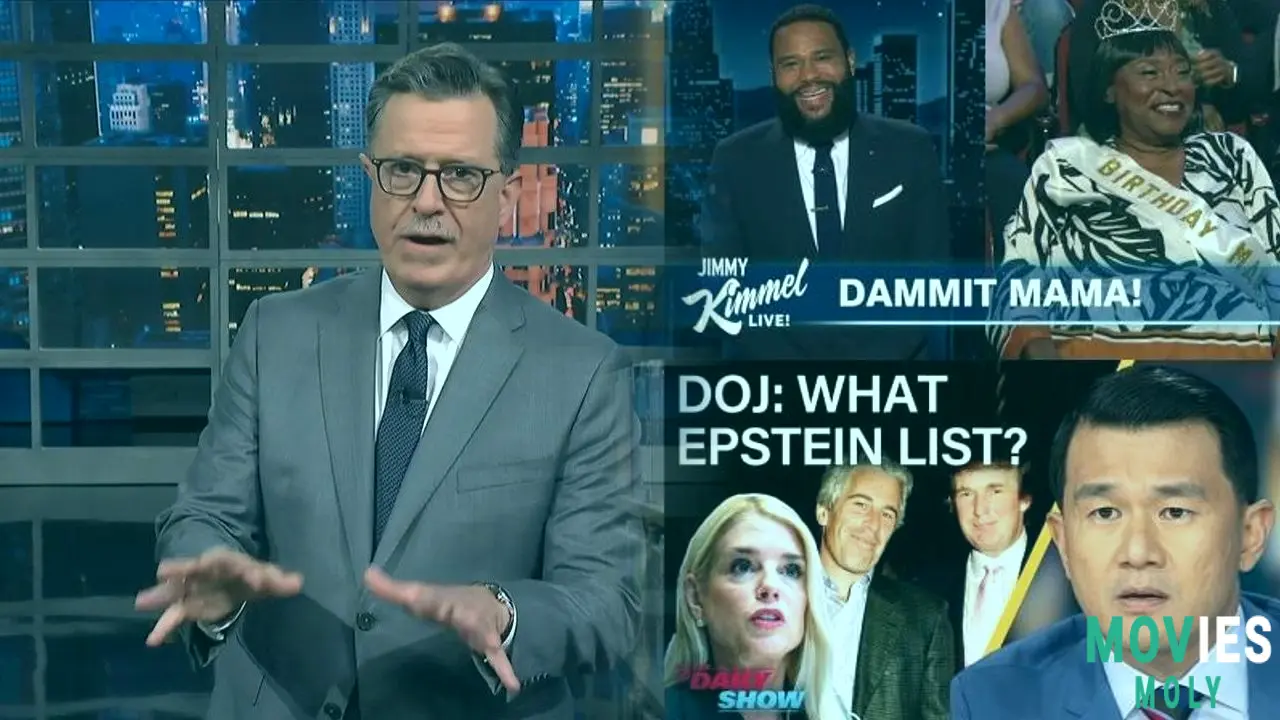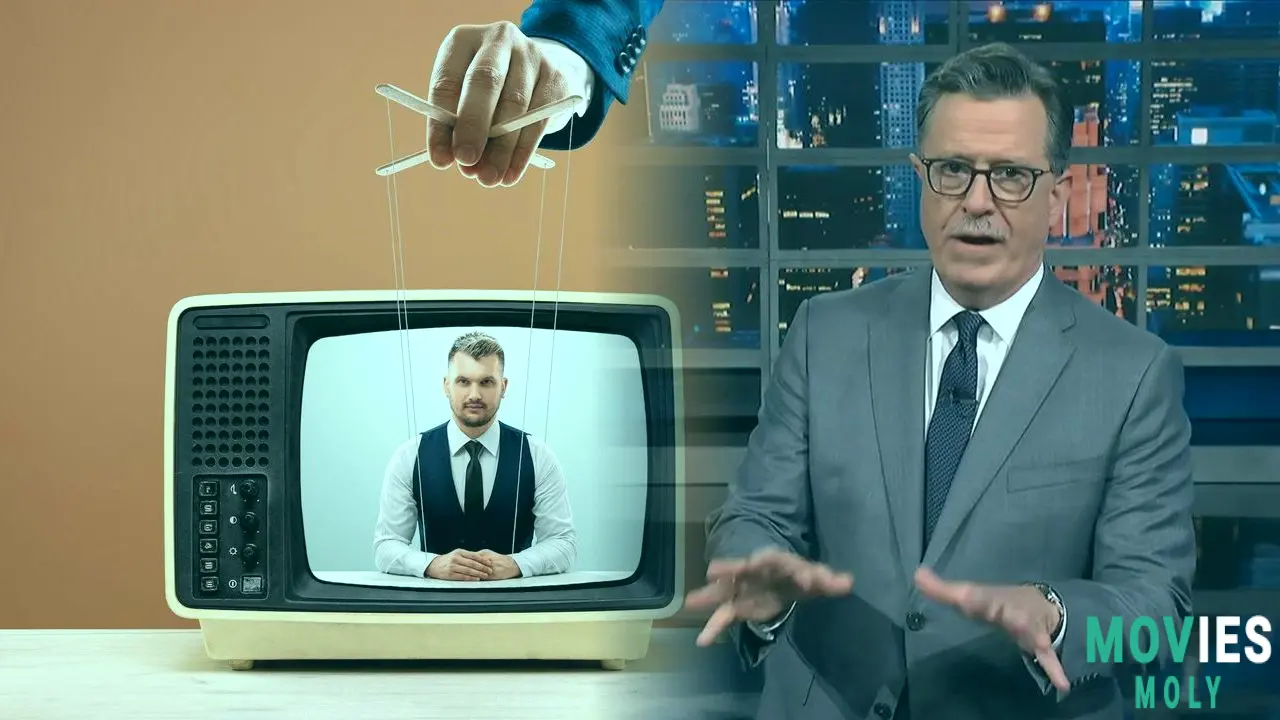The recent deal between Paramount Global and Donald Trump has gotten a lot of attention in the media, with Jon Stewart and Stephen Colbert leading the charge of criticism. This occurrence, which involved paying $16 million to settle a lawsuit over a "60 Minutes" interview, shows that there is still a lot of tension between business interests and journalistic integrity. The main focus is still on this transaction, but it also reminds us that Jon Stewart has always been a major voice in media criticism and political comedy. This article goes beyond the news headlines to look at Stewart's whole career, how he has affected public conversation, and how important he still is in a media world that is always evolving.
The Paramount-Trump Settlement: What Made Stewart CriticizeDonald Trump recently sued Paramount Global, the firm that owns CBS and Comedy Central. The company agreed to pay $16 million to settle the case. Trump said that the lawsuit came from a "60 Minutes" interview with Kamala Harris that he said was unfairly cut. The settlement, which was made public on July 1, has been widely criticized by legal professionals and media figures. A lot of people think the payment was made to make it easier for Paramount to sell to Skydance Media, which needs the Trump administration's approval.
Stephen Colbert, who hosts CBS's The Late Show, came back from vacation and called the payment a "big fat bribe." He was upset and said he didn't know if anything could fix his trust in the organization. He joked that $16 million might help. Jon Stewart, who came back to host The Daily Show part-time in 2024, also spoke out against the deal, calling it a "shameful settlement." He asked why Paramount didn't contest the complaint, especially when the business had already called it "completely without merit."
@PoliticalHumor: You know it's hit a nerve when Jon Stewart says something is "shameful." This Paramount settlement is a clear example of how businesses may affect the news.
Colbert's Echo: The Anger Shared by Late-Night Hosts
Colbert's strong response is similar to Stewart's, showing that late-night hosts who work for the same company are all worried about the same thing. Both comedians have a history of holding people in power accountable, even their own bosses. Their willingness to publicly condemn Paramount for what they see as a breach of journalistic norms sends a strong message about how the media should act.
@NewsJunkie: It's not simply a joke for late at night. Colbert and Jon Stewart are holding their own parent company responsible. That's real news.
The "60 Minutes" Scandal and Its Wider Effects
When a preview clip of Kamala Harris's interview on "Face the Nation" showed a different reaction from Harris than what was shown in the primetime "60 Minutes" episode, it became a subject of contention. Trump's lawsuit against CBS for interfering with the election was based on this difference. People are worried about press freedom and the possibility that corporate mergers could affect what editors choose to publish because of the settlement. There are reports that certain high-ranking CBS News executives and producers were unhappy with the settlement and some of them even quit their jobs. Critics say that these kinds of agreements set a bad example and could make investigative journalism less effective.
@MediaWatchdog: The "big fat bribe" settlement isn't only about money; it's also about how it makes journalists afraid to do their jobs. We need more people like Stewart to speak up.
A History of Jon Stewart's Unfiltered Voice: Challenging Power

Jon Stewart's recent statements fit with a career that has been based on questioning authority and looking closely at how the media works. His return to The Daily Show in 2024, even if it's only part-time, shows that he is still dedicated to commenting on politics and keeping an eye on the media. Stewart has always mixed humor with sharp analysis to make complicated problems easy for a wide range of people to understand.
Stewart's Early Work and Rise to Fame
Jon Stewart worked on his comedy skills by doing stand-up before he became famous for his work on The Daily Show. He presented shows on MTV in the early 1990s and then took over The Daily Show in 1999. Stewart turned the show from a fringe comedy into a major forum for political criticism and media commentary. He drew in a young crowd by giving them a new perspective on politics and the media.
Stewart's Most Memorable Media Takedowns: Key Moments
Stewart was noted for being able to break down news stories and show how political speech and media coverage were hypocritical and inconsistent. He wasn't hesitant to question prominent people, and his interviews often made guests think about what they had said. One such time was when he came on CNN's "Crossfire" in 2004 and angrily told the hosts that they were "hurting America" by arguing about politics instead of having real conversations. The show was discontinued not long after he wrote a bad review, which shows how powerful he was. Many people trusted Stewart because of the way he presented things, even though he was funny.
Stewart's Effect on Political Satire and Journalism: Beyond the Headlines
Jon Stewart's time on The Daily Show changed political comedy and journalism in a big way. He influenced a lot of comedians and journalists, and many of them went on to host their own successful shows, such Stephen Colbert and John Oliver. Stewart's show mixed news and comedy, showing that humor can be a strong way to hold people accountable and make serious points.
@SatireFanatic: No one else can break down complicated subjects with humor and moral clarity like Jon Stewart can. His thoughts on the Paramount deal are a master class.
What Satire Does to Hold Power Accountable
Stewart's funny manner wasn't only for laughs; it was an important part of being a good citizen. He utilized humor to point out how ridiculous the political system and the media was, which made people doubt what they were being told and ask for more openness. His pieces typically gave out serious information, and the humor came from how different they were from what people saw on TV. This way of doing things made him a key source for many people who wanted to understand modern media and current events.
Stewart's work as an advocate and influence outside of TV
Jon Stewart has been a strong supporter of several social concerns outside of his employment on TV. Most importantly, he fought for the rights of 9/11 first responders, working hard to get Congress to give them health coverage and money for their injuries. His fervent pleas and constant work were very important in getting the James Zadroga 9/11 Compensation Act passed and then reauthorized. This activism showed that he cared about more than simply the news of the day, which made him look like a public figure who cared about justice.
@StewartSupporter: Jon Stewart is still an important and uncompromising voice, from speaking out against corporate power to supporting 9/11 victims. It's a gift that he came back.
From "Daily Show" Host to Media Watchdog: The Evolution of an Icon
Jon Stewart's career has changed throughout time, going from being a stand-up comedian to a well-respected political pundit and media critic. He has been relevant and influential even after leaving The Daily Show in 2015 because he can mix cutting wit with real concern for public conversation. His new part-time comeback strengthens his role as a persistent voice against media narratives and power structures.
What Jon Stewart's Comeback Means for Late-Night TV and Media Ethics
Stewart's continuous presence on late-night TV shows that there is still a need for critical, independent voices in a media landscape that is becoming more and more fractured. In a time when companies are merging and politics are getting more divided, it's impressive that he is prepared to speak truth to power, even when it means criticizing his own network. His comeback shows how important satire is as a type of journalism that can get people interested and make them think critically.
Lessons from the Settlement on Dealing with Corporate Pressures
The Paramount settlement is a clear example of how hard it is for news organizations to work in big companies. The idea that commercial deals need to please politicians can make it hard for editors to be independent. Stewart and Colbert's reactions show that even in corporate media, individual voices can fight against these kinds of compromises and put journalistic integrity above all else.
What Jon Stewart and political comedy will look like in the future
Jon Stewart is still a big component of The Daily Show, and his effect on political comedy and media criticism is still significant. His segments still get people talking and keep public figures in check. His distinctive mix of comedy, skepticism, and moral clarity will keep his voice important in a media world that is always evolving. It will shape how people interpret and respond to the news of the day.





